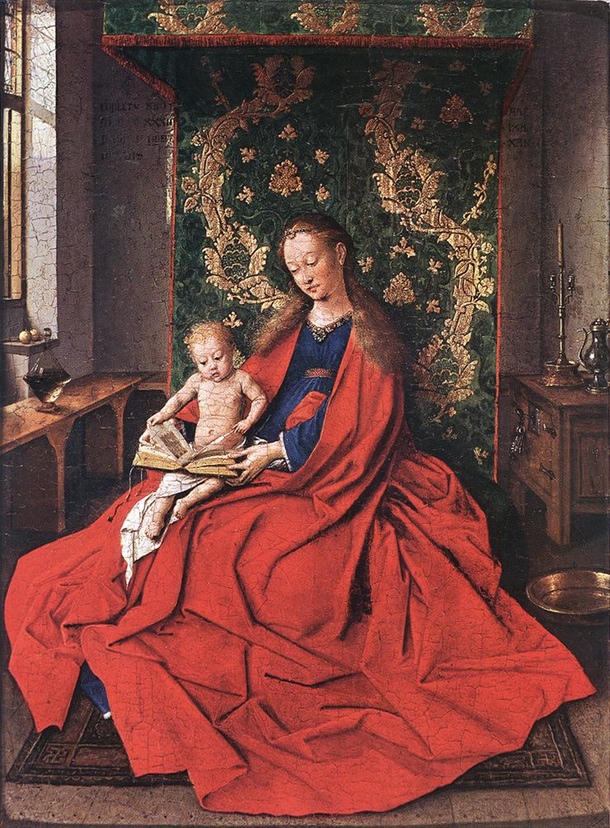
A daughter came to the Dominican cloister and asked for Meister Eckhart. The gatekeeper said, “Who should I say is asking after him?” She said, “I don’t know.” He said, “Why don’t you know?” She said, “Because I am neither a maiden, nor a woman, nor a man, nor a lady, nor a widow, nor a virgin, nor a lord, nor a servant girl, nor a servant.” The gatekeeper went to Meister Eckhart and said, “Come out and behold the most amazing creature whom I have ever heard; let me accompany you. Stick your head out and say: ‘Who calls for me?’” He did so, and she spoke to him just as she had spoken to the gatekeeper. He said, “Dear child, your words are truthful and striking. But explain to me just what you mean by them?” She said, “If I were a maiden, then I would still be in the state of original innocence; if I were a woman, then I would bear the eternal Word in my soul without cessation; if I were a man, then I would avail myself of all my physical strength to withstand all sin; if I were a lady, then I would remain true to my dear, beloved husband; if I were a widow, then I would be filed with longing for my sole beloved; if I were a virgin, then I would stand in reverent devotion; if I were a lord, then I would possess power over all godly virtues; if I were a servant girl, then I would keep an attitude of humility before God and all creatures; if I were a servant, then I would work hard and serve my lord with all my will and without any backtalk. But I am none of these things; I am a different kind of thing, and so I come to you.” The master went away and said to his brothers, “I have heard the purest human being I have ever encountered, or so it seems to me.”
—The Legend of Meister Eckhart’s Daughter (Von einer guten swester ein gutz gesprech daz sie tet zu meister Eckhart, Bayerische Staatsbibliothek Codex Monacensis Cgm750.12-80v-81v, ca. 1350)(S.H. transl.)
Listen to the chorale In dulci jubilo in an arrangement by Michael Praetorius, from Polyhymnia Caduceatrix et Panegyrica (1619). The song text was composed by Meister Eckhart’s disciple, Heinrich Seuse (also known in English as Henry Suso), around 1330:


